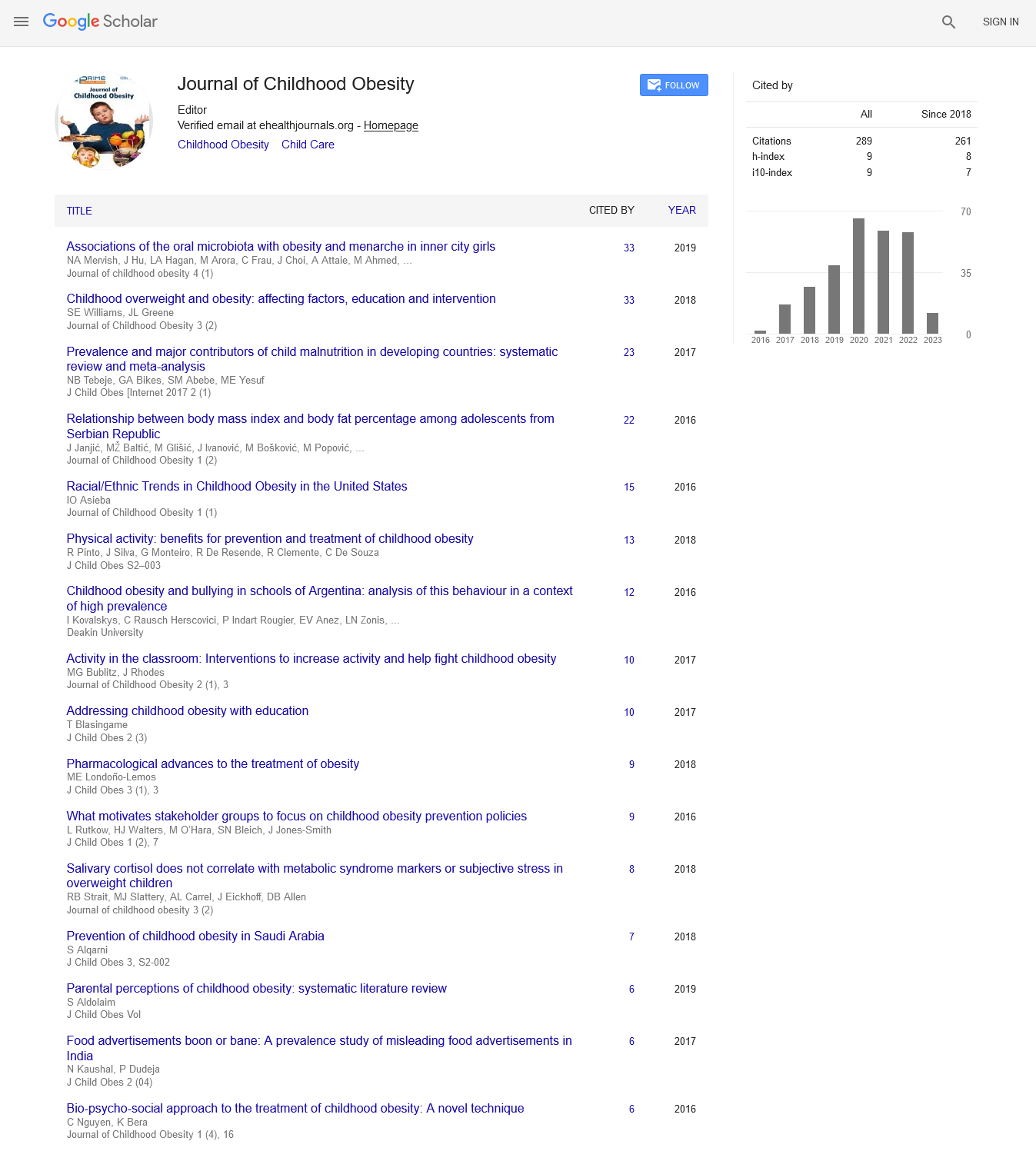Commentary - (2024) Volume 9, Issue 6
Nurturing Wellness: The Power of Healthy Eating Habits
Chin Chang*
Department of Pediatrics, University of Fudan, China
*Correspondence:
Chin Chang,
Department of Pediatrics, University of Fudan,
China,
Email:
Received: 02-Dec-2024, Manuscript No. IPJCO-25-22536 ;
Editor assigned: 04-Dec-2024, Pre QC No. IPJCO-25-22536 (PQ);
Reviewed: 18-Dec-2024, QC No. IPJCO-25-22536 ;
Revised: 23-Dec-2024, Manuscript No. IPJCO-25-22536 (R);
Published:
30-Dec-2024, DOI: 10. 21767/2572-5394-9.6.33
Description
Healthy eating habits are essential for overall well-being,
providing the foundation for a healthy body and mind. Proper
nutrition supports the bodyâ??s growth, energy, immune system,
and ability to perform daily functions. It also plays a crucial role
in the prevention of chronic diseases such as heart disease,
diabetes, and obesity. Developing and maintaining healthy
eating habits is particularly important during childhood,
adolescence, and young adulthood, as these stages are critical
for physical and cognitive development. However, healthy
eating is a lifelong commitment that can lead to a better quality
of life and longevity. Healthy eating is not about adhering to a
restrictive or temporary diet but rather about making balanced
and nutritious food choices that support the bodyâ??s needs.
The key to healthy eating lies in moderation, variety, and
proper portion control. A healthy diet should include a mix of
nutrients, including carbohydrates, proteins, fats, vitamins, and
minerals, all of which are vital for different bodily functions.
A balanced diet provides the body with enough energy and
nutrients to function optimally, whether itâ??s for maintaining
healthy bones and muscles, promoting digestion, or supporting
cognitive abilities. Carbohydrates are the bodyâ??s primary source
of energy. They fuel the brain, muscles, and organs, ensuring
that the body has the energy it needs throughout the day.
However, not all carbohydrates are created equal. Complex
carbohydrates, found in whole grains, fruits, vegetables, and
legumes, are preferred over simple carbohydrates, which
are found in refined sugars and processed foods. Complex
carbohydrates provide steady energy and are packed with fiber,
which is essential for digestive health. Proteins are the building
blocks of the body, involved in the repair and growth of tissues,
production of enzymes and hormones, and the maintenance
of muscles and bones. Protein sources can come from both
animal and plant-based foods, such as lean meats, fish, eggs,
beans, lentils, tofu, and nuts. Itâ??s essential to vary protein
sources to ensure that the body receives a wide range of amino
acids. While fats have often been vilified, they are a necessary
part of a healthy diet. Fats are required for energy storage,
hormone production, and absorption of fat-soluble vitamins
(A, D, E, and K). Healthy fats, such as those found in avocados,
olive oil, nuts, and fatty fish, are beneficial for heart health and
brain function. On the other hand, saturated and trans fats,
found in processed foods, should be limited, as they can raise
cholesterol levels and increase the risk of heart disease. These
micronutrients are essential for various bodily functions, such
as bone health, immune function, and energy production. For
example, vitamin D and calcium are important for maintaining
strong bones, while vitamin C and zinc help to strengthen the
immune system. A varied diet rich in fruits, vegetables, and
whole grains provides most of the necessary vitamins and
minerals. Fiber, found in fruits, vegetables, whole grains, and
legumes, is essential for digestive health. It helps to regulate
bowel movements, prevent constipation, and may lower the
risk of developing gastrointestinal diseases. Additionally,
fiber helps to manage blood sugar levels and supports weight
management by promoting feelings of fullness. Eating a variety
of foods is essential for obtaining all the nutrients your body
needs.
Acknowledgement
None.
Conflict Of Interest
The author declares there is no conflict of interest.
Citation: Chang C (2024) Nurturing Wellness: The Power of Healthy Eating Habits. J Child Obesity. 9:33.
Copyright: © 2024 Chang C. This is an open-access article distributed under the terms of the Creative Commons Attribution License, which permits unrestricted use, distribution, and reproduction in any medium, provided the original author and source are credited.

